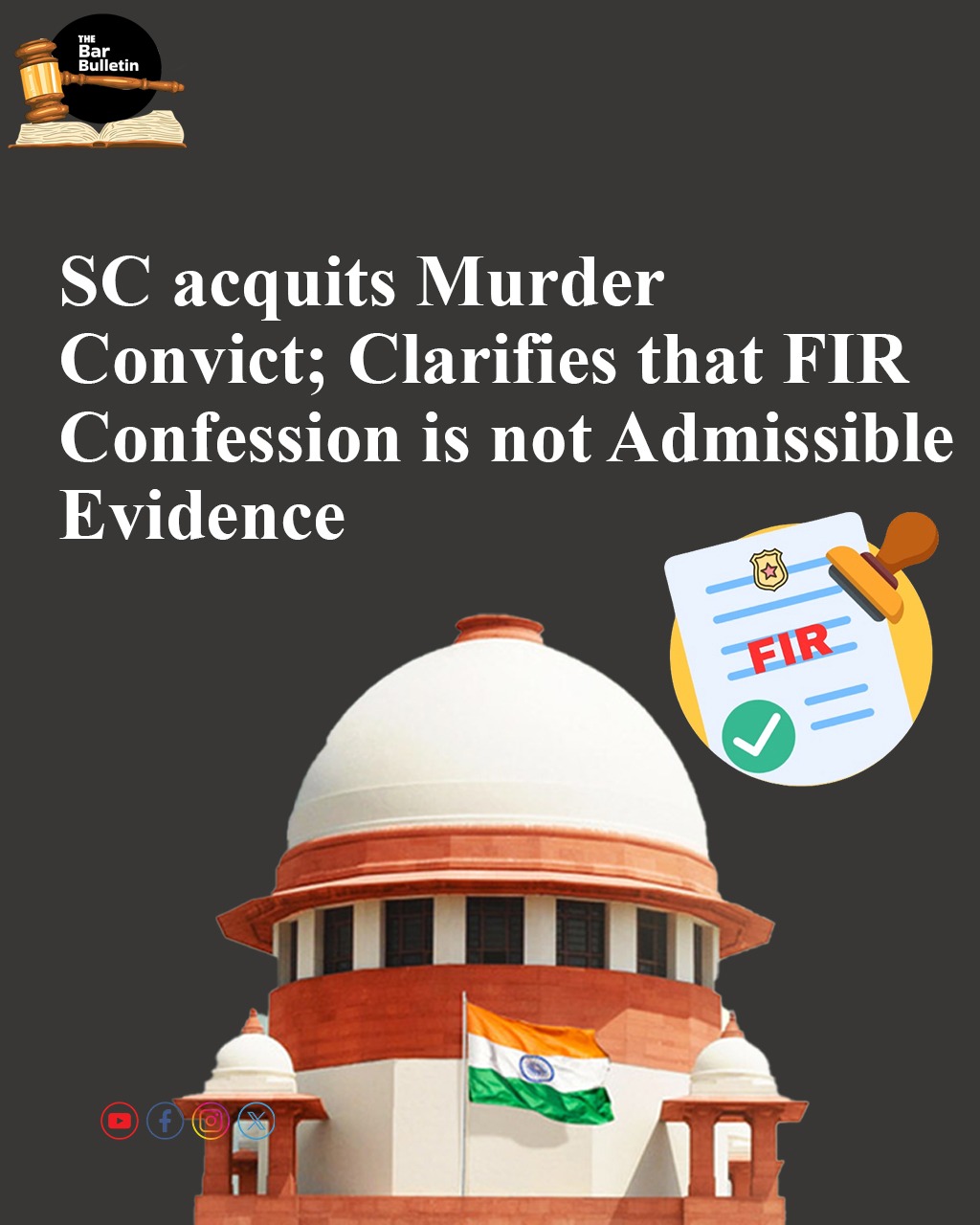The Supreme Court allowed an appeal reversing the appellant’s conviction for culpable homicide and scrutinised the Chhattisgarh High Court for relying on the accused’s own confession in his FIR, holding it to be a foundational error that vitiated the entire case.
The appellant had been convicted by the Sessions Judge in Korba for the 2019 killing of one Ram Babu Sharma, after lodging an FIR himself that detailed a violent drunken altercation and the subsequent cover-up. The Trial Court sentenced him to life imprisonment for murder under Section 302 IPC. On appeal, the High Court altered the conviction to Section 304 Part I IPC (culpable homicide not amounting to murder), granting the benefit of Exception 4 to Section 300 IPC, on the basis that the death followed a sudden quarrel.
Challenging his conviction, the appellant argued before the Supreme Court that the entirety of the prosecution case rested on his confessional FIR and uncorroborated medical or circumstantial evidence, which was legally inadmissible. He claimed innocence and contested the prosecution’s claim that independent testimony established his guilt beyond reasonable doubt.
The Bench comprising Justice J.B. Pardiwala and Justice R. Mahadevan held that the High Court had erred by reading the contents of the FIR as substantive evidence against the accused. The bench drew on Supreme Court precedents, including Nisar Ali vs State of UP[1], Faddi vs State of MP[2], and the landmark Aghnoo Nagesia vs State of Bihar[3], to emphasize that a confessional FIR by the accused is not admissible against him, being hit by Section 25 of the Indian Evidence Act, 1872 (which excludes any confession made to a police officer). At best, a non-confessional portion can be used as an admission, but not where the entire report details a confession. The only exceptions are statements leading to the discovery of material evidence, and even then, only to the extent of the discovery (Section 27). Here, the prosecution had not proved any such recovery through credible testimony.
Significantly, while the High Court had granted the benefit of Exception 4 to Section 300 IPC, reducing the conviction to culpable homicide, the Supreme Court observed that the circumstances would not warrant such an exception even if evidence existed.
In conclusion, the Court set aside the conviction and sentence of the appellant and directed his immediate release if not required in any other case, underscoring that suspicion cannot substitute for proof and establishing reinforced guidance on the inadmissibility of confessional FIRs against accused persons in criminal trials. The Registry was further directed to circulate the judgment to all High Courts for awareness and uniform application.
Appearances:
For the Petitioner(s): Mr. A Sirajudeen, Sr. Adv.; Ms. Manjeet Chawla, AOR; Mr. Vishek Vats, Adv.; Ms. Shaik Soni Ahamed, Adv.; Ms. Kiran Bala Agarwal, Adv.
For the Respondent(s): Ms. Sugandha Jain, Standing Counsel For State Of Chhattisgarh, Adv.; Mr. Prabodh Kumar, AOR
[1] AIR 1957 SC 366
[2] 1964 SCC OnLine SC 123
[3] 1965 SCC OnLine SC 109
![]()



